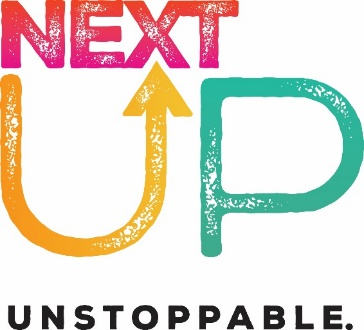The NextUp Program
(CAFYES)

The NextUp Program, formerly Cooperating Agencies Foster Youth Educational Support (CAFYES), developed comprehensive and coordinated sets of services and programs that involve internal and external community partnerships, identifying and addressing barriers--including health and well-being--to the academic success of current and former foster youth.
The NextUp Program is a supplemental component of the existing Extended Opportunity Programs and Services (EOPS) program.
Its ultimate objective is to ensure the:
- recruitment
- enrollment
- retention
- graduation
- transfer
of current and former foster youth students in Los Angeles City College.
- Were in foster care, in any state, for at least one day, on or after their 13th birthday.
- Are enrolled in or planning to enroll in at least nine units or agree to an education plan with the future goal of enrolling in nine units.
- Are no older than 26 years of age at the commencement of any academic year in which the student first enrolls in the program; students enrolled in the program prior to turning 26 are allowed to continue participating in the program beyond the age of 26.
- Enroll in the NextUp program prior to age 26, disenroll, and subsequently return after turning 26 may be readmitted to the same or another NextUp program.
The NextUp program will coordinate and direct services for current and former foster youth in California:
- NextUp supports Foster Youth students affected by language, social and economic disadvantages.
- NextUp continuously improves the delivery of programs and services to our foster youth students.
- NextUp students successfully complete their chosen educational objectives, and transfer to four-year institutions.
In order for a foster youth student to remain eligible for EOPS/NextUp, a student must apply for financial aid, maintain academic progress, and complete and meet an educational plan and responsibility agreement including:
- Orientation, assessment, counseling and education planning.
- Referral to specialized support services.
- Evaluation of each student's progress and referral to appropriate interventions.
- Being a current or former foster youth in California whose dependency was established or continued by the court on or after the student’s 13th birthday, and be younger than 26 years of age at the beginning of the academic school year.
- Confirmation by the State Foster Youth Ombudsman’s Office, via student request. (If colleges wish to obtain verification on behalf of students, they must first obtain a signed, legal release form from the student).
- Chafee grant eligibility confirmation with Financial Aid Office
- Priority enrollment based on foster youth status with Admissions and Records Office
- Confirmation by county of placement (either child welfare agency, independent living program, or, if applicable, probation agency) via a student-requested letter.
(Identification solely as a “ward of the court” is insufficient to verify NextUp eligibility).
- Outreach and recruitment.
- Academic, guidance, and personal counseling.
- Tutoring.
- Frequent in-person contact with, but not limited to, extended opportunity programs and NextUp counselors and staff.
- Transfer counseling.
- Book and supply grants.
- Work study awards.
- Career guidance.
- Meal Voucher.
- Service Coordination.
- Independent Living and Financial Literacy Skills Support.
- Emergency loans (if approved by the Chancellors office).
- Unmet Need grants (if budget permits).
- Child care assistance (if budget permits).
- Transportation assistance.
- Meal tickets and/or emergency food support.
- Emergency housing support (if budget permits).
- Health and mental health services payment assistance (if budget permits).
- Referrals to health services, mental health services, housing assistance, food assistance and other related services including, but not limited to, those available through local county agencies.
- Students participating NextUp shall receive, when appropriate, services and support that are over and above what they are eligible for and do receive from other college support programs.
- An increase in the number of eligible students who receive quality student support services and needed referrals to other needed resources.
- An increase in the rates of eligible students who persist and ultimately, complete a certificate, degree and /or transfer.
- Eligible students report satisfaction with EOPS/ NextUp available services. (Exit survey or interviews)
- A decrease in number of eligible students’ who stop or drop out.
- EOPS/ NextUp program effectively address the specific needs of current and former foster youth.
- EOPS/ NextUp program includes all of the components required by law in a meaningful way.
- EOPS/ NextUp program incorporate evidence-based informed models.
- EOPS/ NextUp program has identified realistic and effective mechanism for leveraging both internal and external resources for NextUp participants.
- EOPS/ NextUp program has program identifies mechanisms for being culturally responsive, in particular to the needs of students with a history of trauma.
Alvaro Aguila, Student Services Specialist- Guardian Scholars/NextUp/FKCE; 323-953-4000 EXT 2334, AGUILAAM2@lacitycollege.edu
Linda MuenteTrujillo, EOPS/NextUp Counselor; muentelg@lacitycollege.edu
Sandra Novoa , Office Aide, EOPS/CARE/NextUp; novoasg@lacitycollege.edu
Ana Lozada, EOPS/NextUp Counseling Intern
Vanessa Lopez, EOPS/NextUp Counseling Intern
Niki Dixon Harrison, Associate Dean of Student Services , EOPS/CARE/FosterYouthPrograms/Resources for Success
Office Phone: (323) 953-4000 ext. 2305
Live Chat With This Department
Contact Us
Office Hours and Location
In-Person
Mondays to Thursdays: 8:00AM - 6:00PM
Fridays: 8:00AM - 2:00PM
Saturdays to Sundays: Closed
Online
Mondays to Thursdays: 8:00AM - 6:00PM
Fridays: 8:00AM - 2:00PM
Saturdays to Sundays: Closed
Student Services Building, 3rd Floor
Contact
Email: @email
Phone: (323) 953-4000 ext. 2300